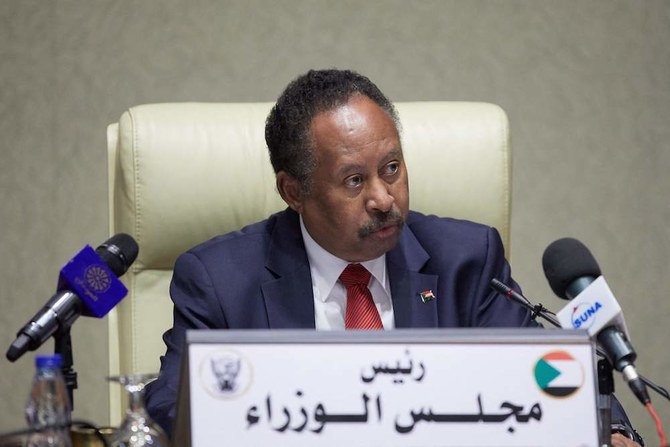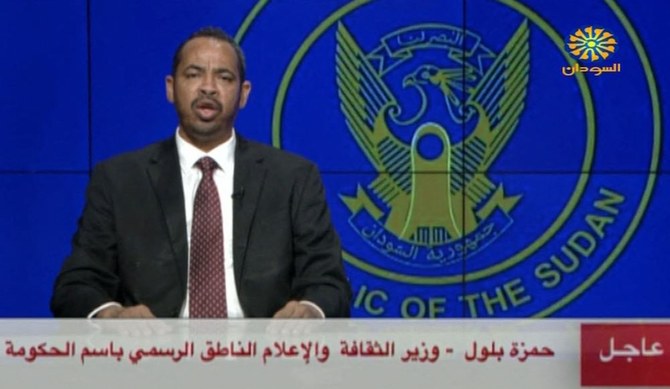JEDDAH:
Sudan’s transitional government thwarted an attempted Islamist coup on Tuesday by military officers and civilians linked to the regime of ousted dictator Omar Bashir.
Prime Minister Abdalla Hamdok said the plotters had “made extensive preparations, which were represented by the security breakdown in cities ... blocking of national roads, closure of ports and persistent instigation against the civilian government.”
Information Minister Hamza Baloul said: “Order has been restored and the leaders of the attempted coup, both military and civilian, have been arrested. Authorities were “pursuing supporters of the defunct regime” who took part, he said.
The military said most of those involved, including 21 military officers, had been detained. “The army regained control over the sites that perpetrators sought to seize,” it said. “Searches and investigations are still ongoing for others involved.”
Abdel Fattah Al-Burhan, Sudan’s army commander and head of the ruling sovereign council, visited Al Shajara military camp in south Khartoum, where the attempted coup began. “Had it succeeded, the attempt could have had devastating consequences on the unity of the army, security forces, and the country,” he said.
“We want to take this country and hand it over to the public will, to free and fair elections.”
In an address to troops, powerful paramilitary commander Mohamed Hamdan Daglo said: “We will not allow a coup to take place. We want real democratic transition through free and fair elections, not like in the past.”
Early on Tuesday morning, military units loyal to the council used tanks to close the Nile bridge connecting Khartoum with Omdurman. A government source said the plotters had tried to take control of state radio in Omdurman. The streets of the capital were calm later on Tuesday, with people moving around normally.
Anti-coup demonstrations broke out in several other cities. At Port Sudan in the east, protesters raised Sudanese flags and chanted “No to military rule” and “No to coup.”
The US, Britain and Norway, which have led Western engagement with Sudan, stressed their support for democratic transition, as did the UN.
Bashir came to power in an Islamist military coup in 1989. He was deposed in 2019, and is in prison in Khartoum awaiting trial over the coup.
He also faces trial by the International Criminal Court on charges of war crimes, crimes against humanity and genocide for his persecution of ethnic minority rebels in Darfur.
Under an August 2019 power-sharing deal, Sudan is ruled by a transitional government with both civilian and military representatives, whose job is to oversee a return to full civilian rule.























